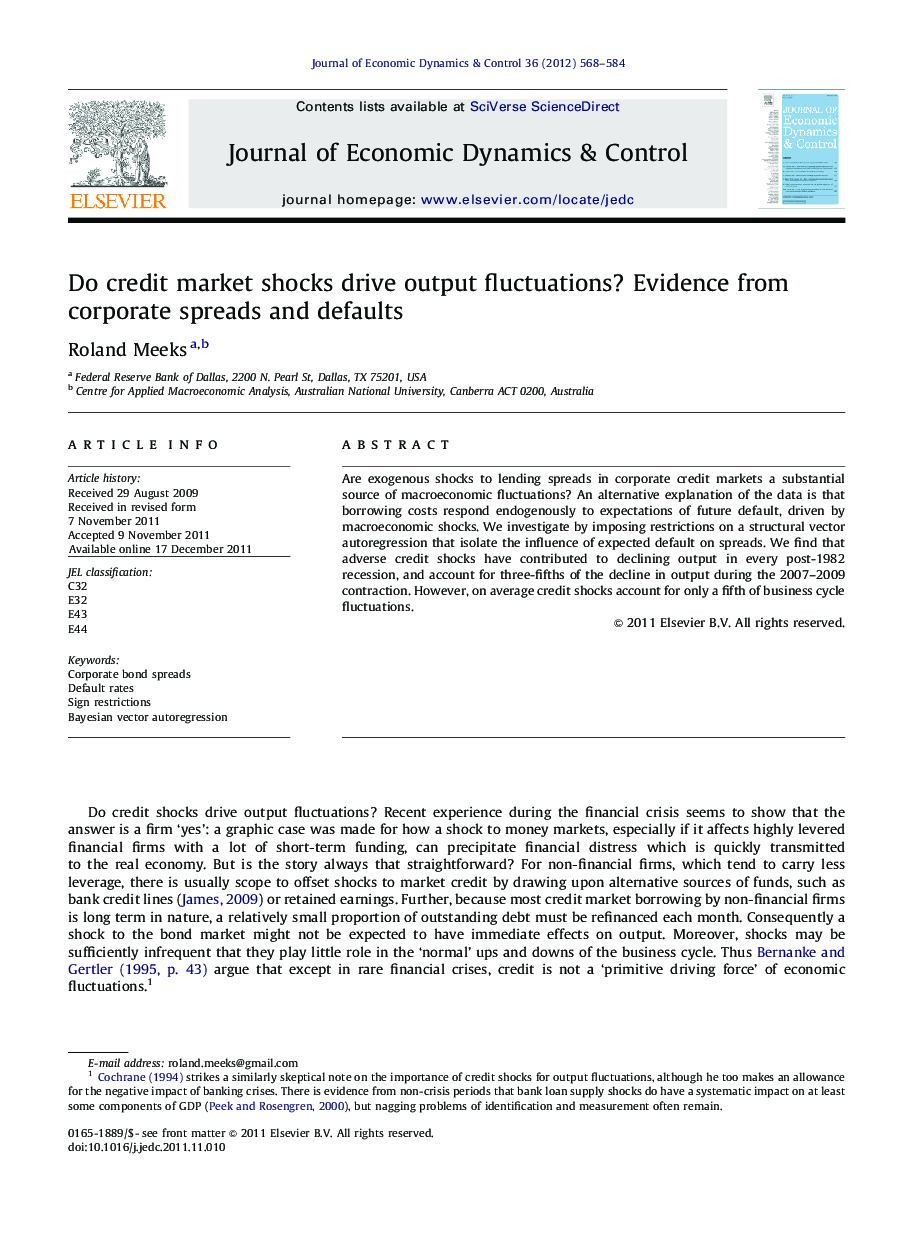| Article ID | Journal | Published Year | Pages | File Type |
|---|---|---|---|---|
| 5099153 | Journal of Economic Dynamics and Control | 2012 | 17 Pages |
Abstract
Are exogenous shocks to lending spreads in corporate credit markets a substantial source of macroeconomic fluctuations? An alternative explanation of the data is that borrowing costs respond endogenously to expectations of future default, driven by macroeconomic shocks. We investigate by imposing restrictions on a structural vector autoregression that isolate the influence of expected default on spreads. We find that adverse credit shocks have contributed to declining output in every post-1982 recession, and account for three-fifths of the decline in output during the 2007-2009 contraction. However, on average credit shocks account for only a fifth of business cycle fluctuations.
Keywords
Related Topics
Physical Sciences and Engineering
Mathematics
Control and Optimization
Authors
Roland Meeks,
